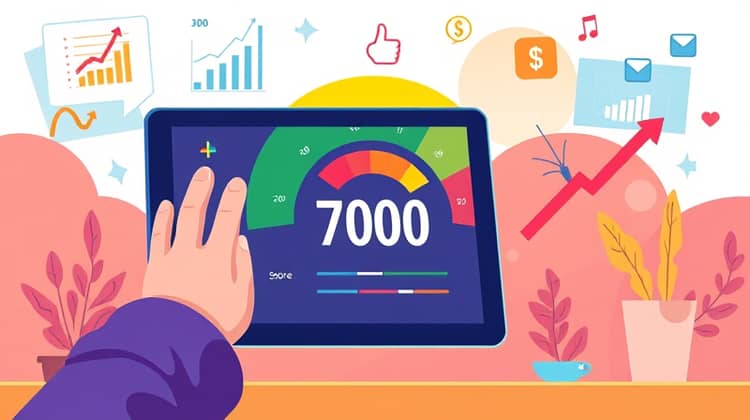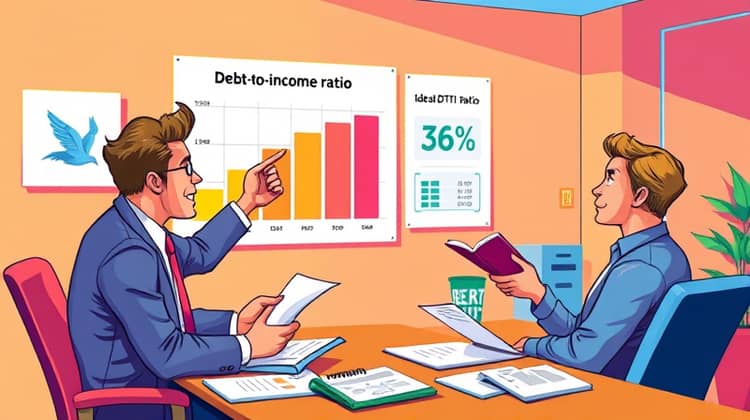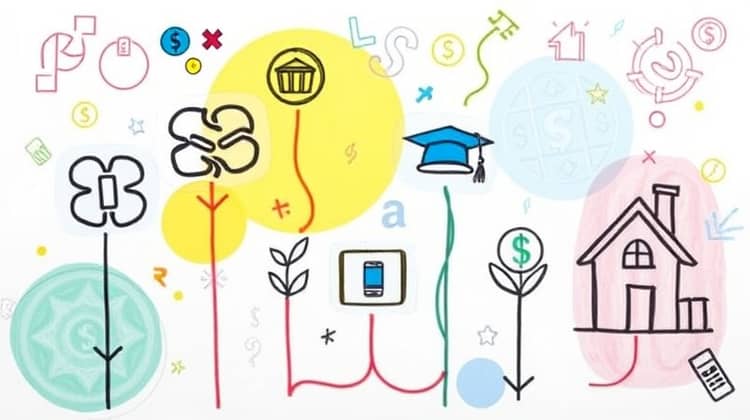Personal loans are a popular option for individuals seeking financial assistance for various needs, such as debt consolidation, home improvements, or urgent expenses. However, before applying for a personal loan, it's essential to understand the eligibility criteria set by lenders. Different lenders have various requirements, but several key points are universally considered in assessing a borrower's suitability for a loan.
In this article, we will explore the five main criteria that can determine your eligibility for a personal loan. By familiarizing yourself with these factors, you'll enhance your chances of securing the funds you need while ensuring that you meet the necessary requirements.
1. Income and Employment Stability

One of the primary factors lenders consider is your income and employment stability. Lenders want to be assured that you have a consistent source of income to repay the borrowed funds. A steady job performed for at least two years generally signals reliability and reduces the lender's risk.
Employment history and income levels are crucial signals. If you are self-employed or have irregular income sources, you may still qualify for a loan, but lenders might require additional documentation to verify your income stability. Ensuring that your income can adequately cover repayment obligations is critical to securing a loan.
- Consistent employment history (at least 2 years)
- Stable income level
- Ability to provide pay stubs or bank statements
- Additional income through side jobs or freelance work might be considered
If your income is variable, be prepared to provide financial documents that demonstrate your capacity to repay loans, like tax returns or detailed bank statements. Lenders are looking for reassurance that you can manage your monthly obligations while also handling your personal expenses.
2. Credit Score and History

Your credit score and history play a pivotal role in determining your eligibility for a personal loan. A higher credit score indicates to lenders that you have a track record of managing debt responsibly, thus reducing their risk in lending to you.
Typically, a credit score of 700 or higher is favorable for getting a personal loan with better terms. However, lenders may consider scores lower than that as well, albeit with higher interest rates or stricter terms.
- Credit scores typically range from 300 to 850
- A score of 700 or above is often seen as good
- Late payments and defaults negatively impact your credit score
- Lenders will review your credit history for previous delinquency or bankruptcy issues
3. Debt-to-Income Ratio

The debt-to-income (DTI) ratio is a critical factor in evaluating your financial health when applying for a personal loan. It compares your total monthly debt payments to your monthly gross income. Lenders use this ratio to gauge how much of your income is already allocated to debt repayment and your capability to take on new debt.
Typically, a DTI ratio below 36% is ideal, with some lenders accepting ratios up to 43%. A higher ratio could indicate to lenders that you are over-leveraged and may struggle to meet new repayment obligations. It's crucial to calculate your DTI before applying for a loan to understand your standing better.
- A DTI ratio below 36% is considered ideal
- DTI ratio above 43% may pose challenges
- Include all monthly debts: mortgages, car loans, credit card payments
- Lenders look for low ratios to minimize their risk in lending
4. Age and Residency

Your age and residency status can also impact your eligibility for a personal loan. Many lenders have a minimum age requirement of 18, as that's the legal age for entering into contracts. However, some lenders may require applicants to be at least 21 years old to qualify for more considerable loan amounts or specific types of loans.
Residency status is equally crucial. Most lenders require you to be a legal resident or citizen of the country in which you’re applying for a loan. Non-residents may have different options available, but they often face more stringent requirements or alternative lending avenues.
- Minimum age requirement is usually 18, some at 21
- Must be a legal resident or citizen
- Documentation may be required to prove residency
5. Loan-Specific Requirements

Different lenders have particular requirements based on the type of loan you are applying for. Certain types of personal loans, such as those for medical expenses, educational costs, or home renovations, may have specialized criteria based on the loan purpose. Additionally, requirements might vary based on lender policies or new regulations that could be introduced over time.
Factors such as the desired loan amount, repayment period, and interest rates can play a role in what specific documentation or eligibility criteria you might face when securing a loan.
- Loan amount and purpose affect specific requirements
- Repayment period can alter eligibility criteria
- Interest rates may vary based on borrower’s profile
Conclusion

Understanding personal loan eligibility criteria is essential for potential borrowers. By being aware of critical financial aspects such as income stability, credit history, DTI ratio, age, residency, and loan-specific requirements, applicants can prepare adequately for the application process. Taking proactive steps, like improving credit scores and stabilizing finances, can lead to increased chances of approval.
As individual situations can vary widely, it is advisable to examine personal financial circumstances closely and consult with a financial advisor if uncertain about any factors influencing eligibility. With proper preparation, obtaining a personal loan can be a straightforward process.














